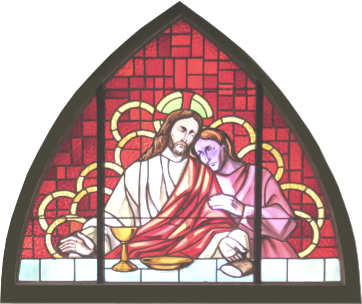Dear brothers and sisters in Christ,
Warm greetings and good wishes of perseverance and hope at this difficult time, when the number of active cases in Saskatchewan have risen dramatically. For many, in the past two weeks, including myself, the pandemic has become real in a new way, as family members, friends, or people we know well have tested positive, are in ICU, or have died. We lift all those who have died and their loved ones, all who have tested positive for Covid and their families, in fervent prayer before the Risen Lord.
As you know, new restrictions have been put in place regarding mask usage, affecting all the parishes of the Archdiocese. The Saskatchewan Health Authority and provincial government have not imposed further restrictive steps on faith communities at this time, but have continued their conversation with faith leaders, and have let us know that there are cases of the virus having spread in worship settings in the province. They have not moved to lockdown, but have arranged a series of urgent meetings, asking what we can do and what we would recommend so that we mitigate risks, encourage adherence to the directives, and reduce movement and duration during worship services. I am grateful for the spirit of consultation which is now prevailing.
As we approach the great feast of Christ the King, I am reminded of all the places in which we are called to allow Christ to be our King: our hearts, wills, societies, the world around us. When the feast was instituted by Pope Pius XI, he wanted to invite the faithful to participate in the challenges and struggles of the societies in which they lived, but to do so mindful of a higher authority. Political structures have a rightful place in our lives, but also limits, and our ultimate authority is Christ the King. When the re-open Saskatchewan plan was first announced in late April and there was no mention of religious groups and how they would be able to safely gather, we joined with faith leaders from across the province to approach our Premier with the hope of beginning a dialogue about the importance of religious gatherings. As Catholics and citizens, we recognize that civic and health authorities have an important role to play, but we also wanted them to hear what faith communities could provide to our society at a time of deep struggle, in terms of hope, of maintaining a safe environment, and of caring for the vulnerable. The fruits which have come from these dialogues and deeper relationships are most evident in the greater numbers that our spaces are allowed than other public gatherings. While more changes are likely to come, it is helpful to remember the words of Pope Pius XI in the encyclical which instituted the feast: “there seems no reason why we should despair of seeing that peace which the King of Peace came to bring on earth – he who came to reconcile all things, who came not to be ministered unto but to minister, who, though Lord of all, gave himself to us as a model of humility, and with his principal law united the precept of charity” (20).
This year on the feast of Christ the King, we will hear the powerful words of Matthew 25 and Jesus’s parable of the last judgement. Jesus our king gives us a word, a word to live by, a difficult and challenging word. The word comes in the form of a question, the last question we are ever likely to hear. The parable tells us that at the end of time, when death is conquered and God is all in all, when we stand before the risen Lord, he will ask: when I was hungry, did you give me food? When I was thirsty, did you give me something to drink? When I was sick, or in prison, did you visit me? When I was a stranger, did you welcome me? The Incarnate Word identifies himself with those in greatest need, and tells us that we encounter him there, in what Mother Teresa refers to as Christ in his most distressing disguise.
The questions ought to make us restless, uncomfortable. They are not new; we know them, we have heard them before. Indeed if we listen closely, we hear them being asked to us daily in a thousand different ways. Sometimes it’s a beggar on the street who asks them to us; sometimes it is a victim of clergy sexual abuse who wants to be heard and respected. Sometimes it is an Indigenous brother or sister who needs help, and sometimes it’s a family member or neighbour who is struggling. Sometimes it is the unborn or those at the end of life who are pushed aside, and sometimes it’s a saint, like John Chrysostom, who reminds us that an afflicted sister or brother is “the most precious temple of all.” Sometimes it’s Pope Francis, who tells us he prefers a Church which is bruised, hurting and dirty because it has been out on the streets, and sometimes it’s a critic of the church, who points out our lack of integrity.
As we prepare to celebrate the Feast of Christ the King, let us renew our commitment to love and welcome the Lord in all the ways he comes to us. Let us participate in our civic life, work with our elected officials and health authorities, and do all we can to protect the vulnerable. And in all that, let us be guided above all by the Lord, who immerses himself in the sufferings and struggles of humanity and asks us to love and serve him there: Christ our King.
Watch Video Message HERE
